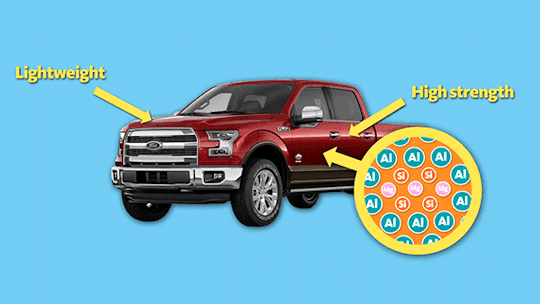Materials scientist Suveen Mathaudhu shows us how both our favorite superheroes and real-world scientists create materials to save the world every day.
Some of Mathaudhu’s own research at UC Riverside has been inspired by Captain America’s shield: is it possible to make a material that is both incredibly strong and super lightweight?
Advances in this area have already made a real impact, particularly in transportation. Lighter vehicles mean better fuel efficiency, making cars cheaper to run and better for the environment.

The Ford F-150, the top-selling pickup truck in the US, shifted from a steel frame to an aluminum frame, increasing the fuel economy of the vehicle by taking over seven hundred pounds out of the frame of the vehicle.
Making the frame weigh less is a big start, but there’s another less obvious source of weight: wiring. The average automobile has between 45 – 110 pounds (20 -50 kg) of electrical cabling.
“Most of it is thick copper cable, and copper cable is heavy – and now copper is very expensive,” said Mathaudhu. “If we could get a fraction of that conductivity in aluminum, it would not only be cheaper to implement, it would be lighter weight even though it will never have the conductivity that copper will inherently have.”
Mathaudhu’s research has shown how you can use nanostructured features in aluminum to maintain its conductivity, while simultaneously boosting the strength of the aluminum. Aluminum is both cheaper and lighter, so by moving toward aluminum cabling, car manufacturers can solve two problems at once.

